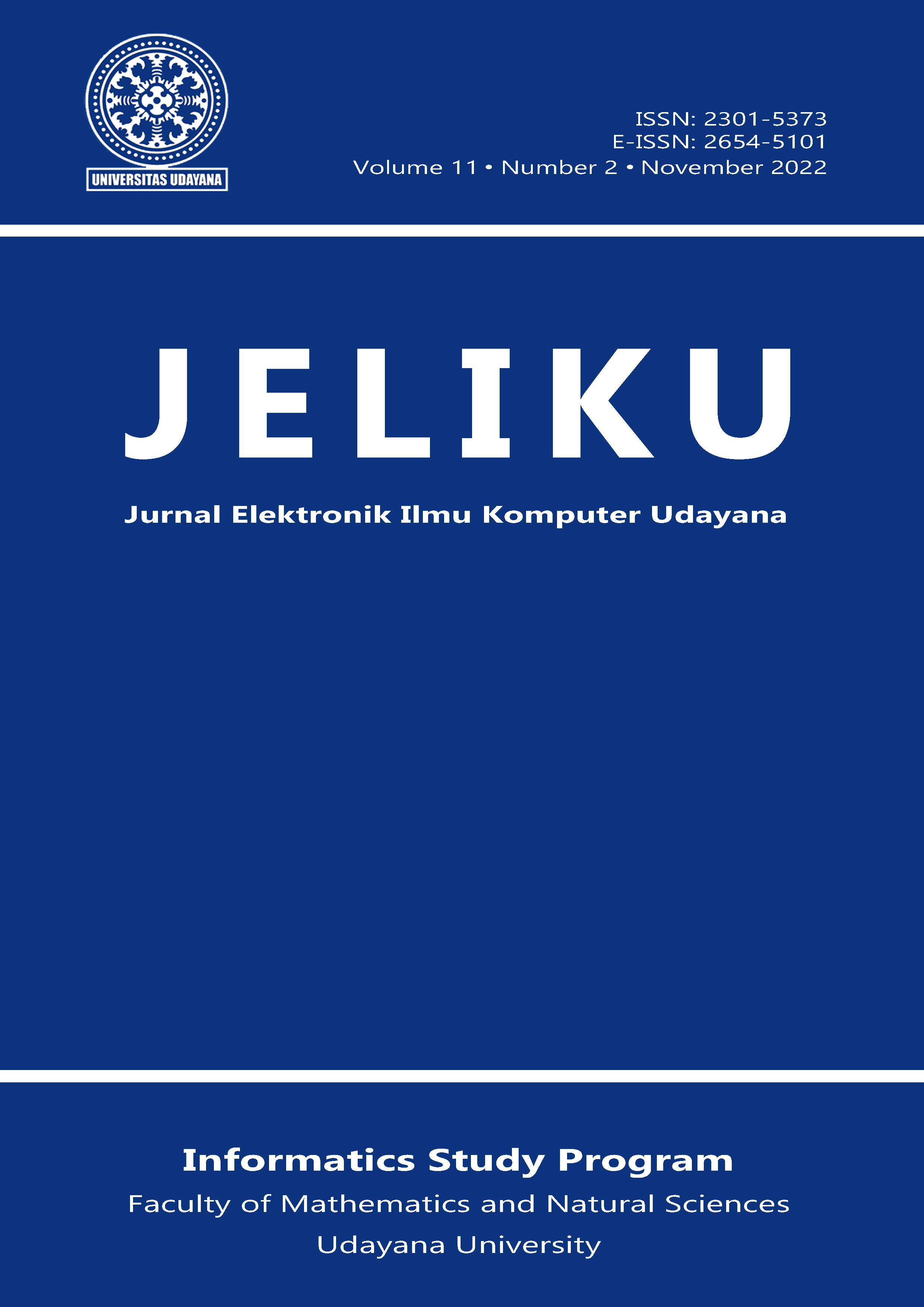Klasifikasi Serangan Distributed Denial of Service (DDoS) Menggunakan Random Forest Dengan CFS
Abstract
Distributed Denial of Service (DDoS) attacks can have serious impacts on your organization and can cause enormous losses. This attack works by sending a computer or server an amount of requests that exceeds the capabilities of that computer. When classifying DDoS attacks in this study, feature selection is performed using correlation-based feature selection (CFS). The dataset used by the author in this study is CSE-CIC-IDS 2018. Feature selection on a dataset using CFS gets the results in the form of features related to the dataset. That is, a total of 31 features with a relationship score greater than 0.1. The average precision generated by the system using the random forest method and CFS function selection is 99.784%. Accuracy is the result of using the number of trees parameter with a value of 10. For a random forest model with no feature selection, the highest accuracy is 49.501%. This indicates that changing the random forest model parameters and selecting the CFS feature will affect high accuracy.






